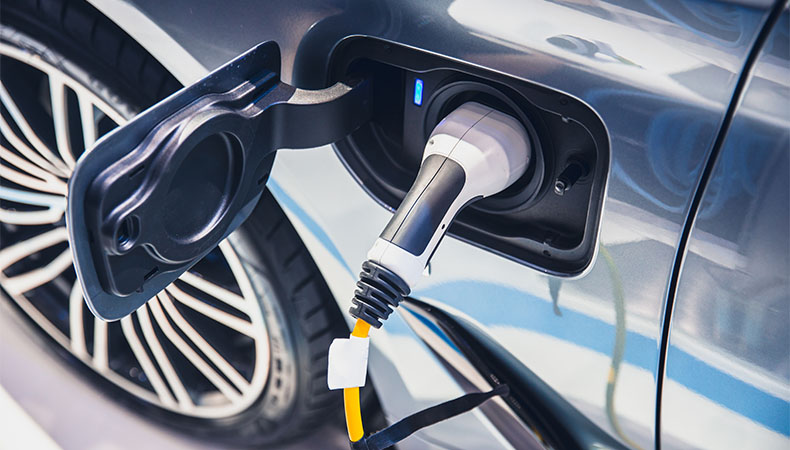Triple whammy for EV drivers, but salary sacrifice saves the day for employees
Individuals choosing an EV or plug-in hybrid electric vehicles (PHEVs) privately could be facing a triple whammy of new electric vehicle costs.
From April, electric vehicles, including hybrid, ultra emission and alternatively-fuelled vehicles, will either be liable for road tax for the first time or see an increase over previous rates.
In addition, certain EVs will now attract the ‘expensive vehicle supplement’ of £425 payable for the first five years from the car’s first ‘birthday’ – otherwise known as the luxury car tax.
First introduced in 2021 and applied to petrol or diesel vehicles, the tax will now extend to EVs registered from April 2025 and worth over £40,000.
Together, these costs could add an up to an extra £600 a year to the cost of running an electric vehicle.
For company car or salary sacrifice scheme drivers of plug-in hybrid electric vehicles (PHEVs), there is an additional cost.
From January, the Euro 6e-bis emissions standard was introduced.
This is an EU-wide standard which sets out stricter emission testing methods for new PHEVs to reflect real-world driving and therefore improved accuracy in identifying CO2 emissions.
In other words, new PHEVs will now undergo much more thorough testing in genuine driving situations to provide accurate CO2 level readings.
Previously, CO2 emission testing used simulated distances of 800km to produce a CO2 emission but will now use 2,200km to more accurately increase real world driving.
These stricter regulations inevitably means that CO2 emissions emitted by PHEVs will increase.
Because benefit-in-kind (which is payable by those with a company or salary sacrifice car) is determined by CO2 emissions, the stricter emission testing on PHEVs will likely result in a higher benefit-in-kind tax bracket.
This could see employees starting to move away from using PHEVs in salary sacrifice and company car schemes due to increased tax.
Currently, Euro 6e-bis emissions standards apply only to newly-launched PHEVs from 1st January 2025.
By the end of 2025, existing PHEV models will be tested in line with these standards.
But it’s not all bad news – far from it
While there will be cost increases, substantial savings can still be made from salary sacrifice car schemes.
Costs are already ‘locked’ in over a multi-year agreement period with a fixed monthly amount which includes road tax, MOT, routine maintenance and servicing, insurance and breakdown cover.
And crucially, employees benefit from tax and NI savings on electric and Ultra Low Emission Vehicles on the scheme.
In essence, driving an electric vehicle via salary sacrifice provides significant financial benefits for employees.
Employees not only gain peace of mind that their monthly costs are fixed, but they can also save over £1,200 in fuel costs from switching to an EV from a petrol or diesel vehicle (based on comparison between Citroen eC4 and C4, petrol, February 2025).
The savings employees make on tax and NI contributions are also significant. Lower-rate taxpayers are saving an average of £2,076 a year in tax and NI in 2025.
Financial inclusivity
Many salary sacrifice EV car schemes are available to a wide-range of employees in all tax brackets - providing their salary remains over the National Living Wage after reductions - thanks to lower cost EVs and pre-loved electric vehicles which are now reaching the market.
With both employers and employees looking for value for money, lower cost EVs like the 2025 Renault 5 E-Tech which retails from around £22,995 won’t attract the expensive vehicle supplement and is likely to be a popular choice.
Fleet options
And from a fleet perspective, employers are starting to look at extending the traditional agreement term from 3-4 years to 5 years because EVs are easier - to maintain and have less ‘moving parts’ to replace than their petrol or diesel predecessors.
And because longer terms mean lower monthly amounts as the costs are spread out over longer periods, the additional cost reduction helps lower paid employees to benefit, too.
Overall, the new tax changes coming into effect from April will result in higher costs, but employees can lessen the impact by utilising salary sacrifice car schemes and opting for lower cost EVs.
The government is taking steps to encourage greater take-up of EVs so making use of salary sacrifice car schemes means that employees can enjoy the benefit an EV can bring, while also benefitting from the savings available.
Supplied by REBA Associate Member, Tusker
Tusker is the UK’s leader in salary sacrifice cars. Part of Lloyds Banking Group, it has more than 15 years’ experience in offering an affordable way for employees to drive a new, fully insured, and maintained car. Its scheme, which is available to over 1.8 million UK employees, offers a range of options, from pure electric cars to hybrids and even traditional petrol and diesel vehicles. It provides a tailored scheme for organisations’ individual needs.








